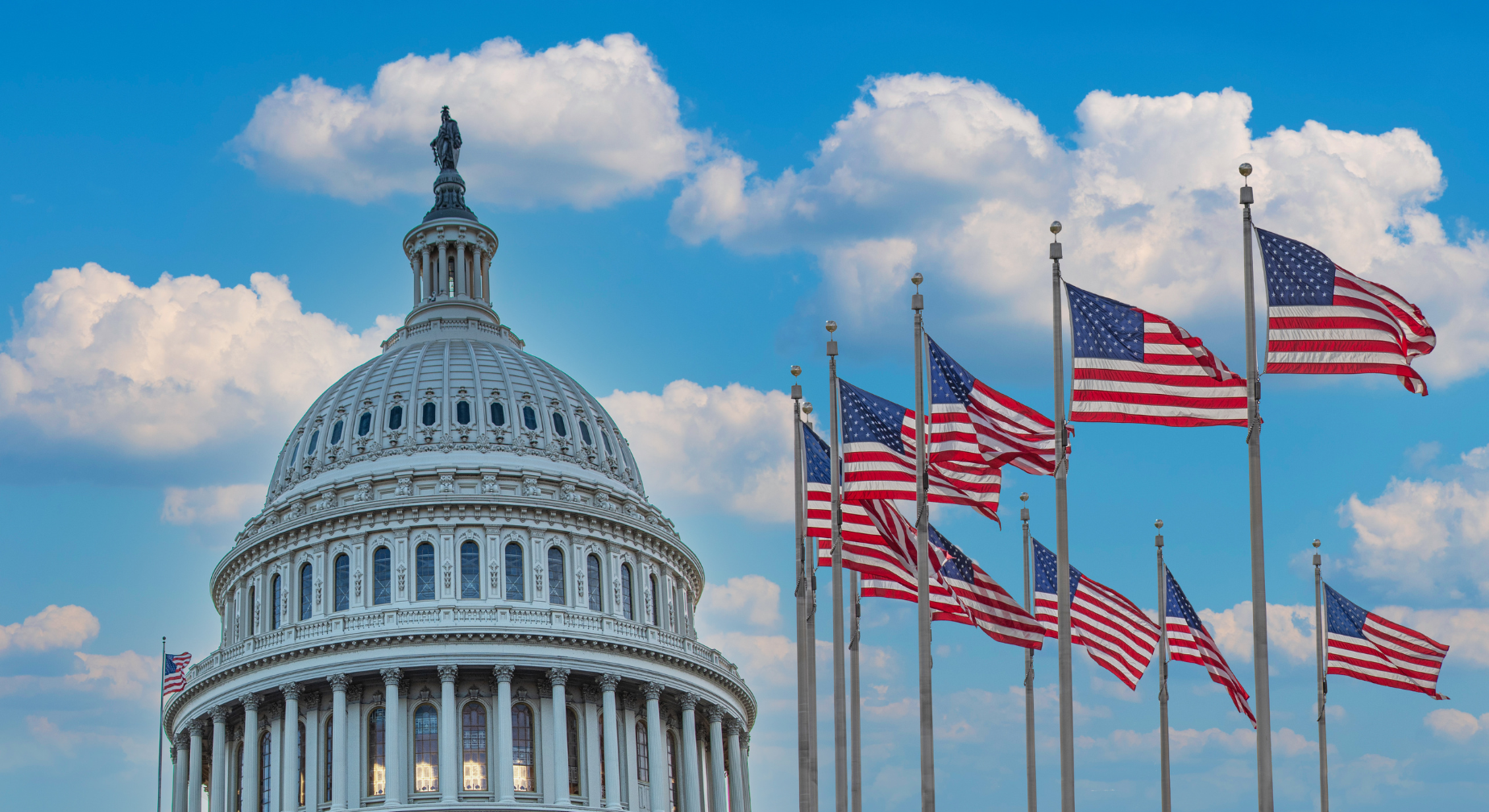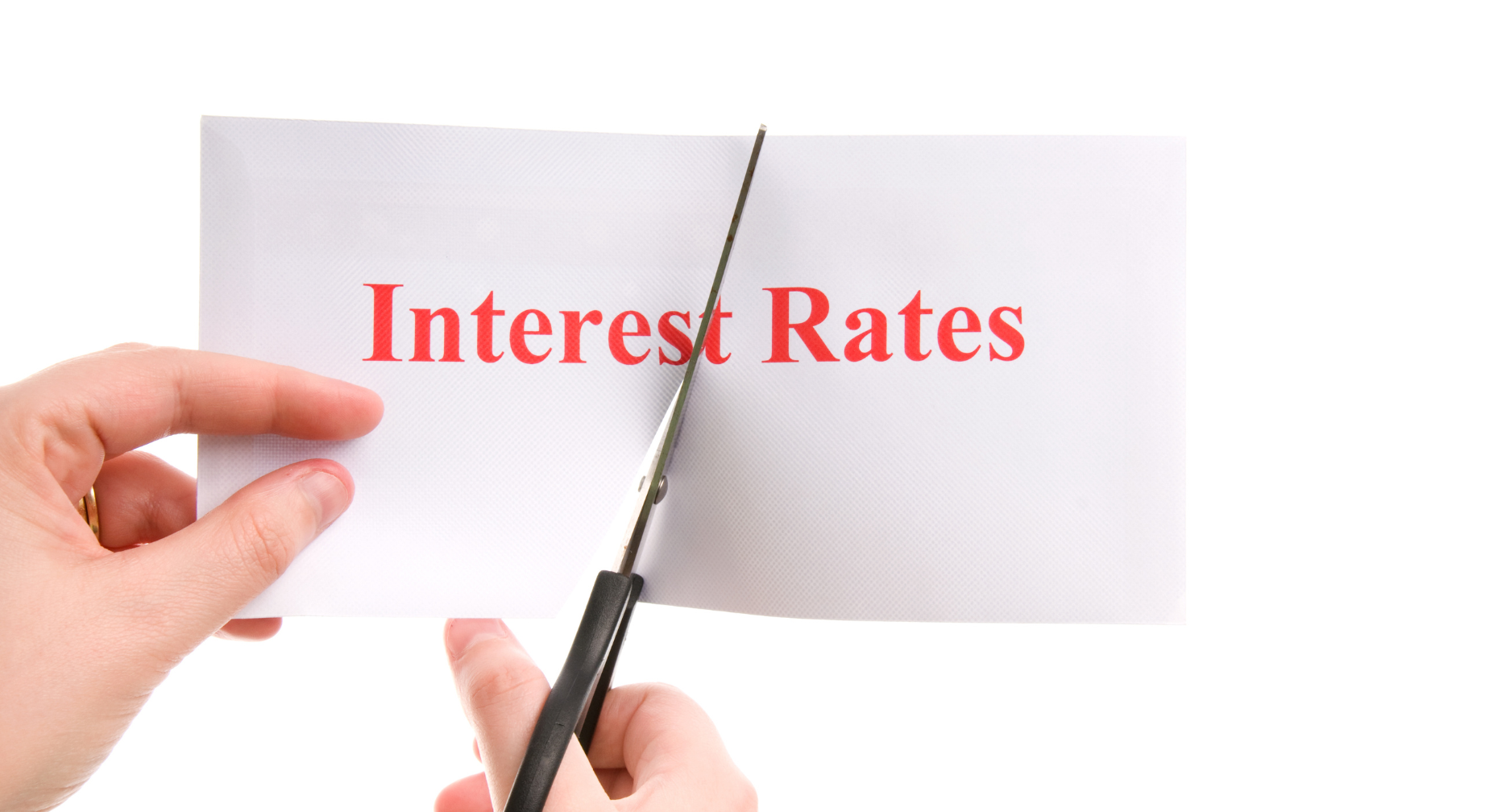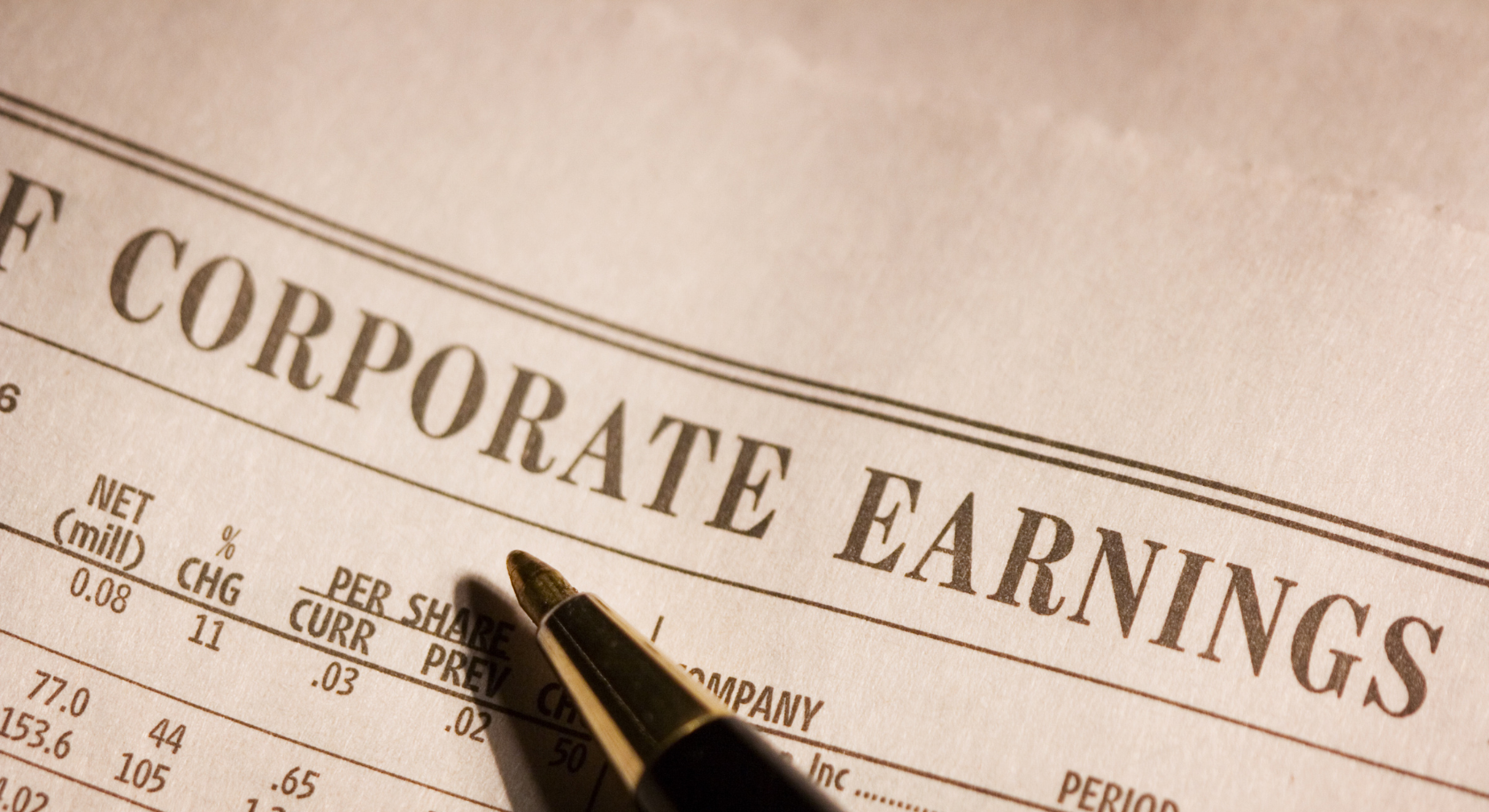Insights

Thank you! Your submission has been received!
Oops! Something went wrong while submitting the form.

Monthly Market Update for January: Geopolitics, the Fed, and Precious Metals
The start of the year was positive for stocks and bonds, continuing the rally from recent years. This might be surprising to some investors since there were several periods of volatility driven by geopolitics and Federal Reserve policy.

The Importance of Earnings for Long-Term Portfolios
As the corporate earnings season ramps up, markets are shifting their focus from geopolitical concerns to tangible evidence of how businesses are performing. With the stock market hovering near all-time highs, questions around valuations and the sustainability of recent profitability trends have become increasingly important.

Venezuela, Oil, and the Impact on Portfolios
The arrest of Venezuelan President Nicolás Maduro by U.S. forces represents an unexpected and significant geopolitical event. As has been widely reported, the U.S. military successfully conducted an operation that detained Maduro on charges related to drug trafficking and corruption.

The Future of the Fed: New Leadership and Rate Cuts
For long-term investors, the Federal Reserve plays a key role in supporting the economy and financial system. This will be especially important in 2026 since Jerome Powell's term as Fed Chair ends in May, creating an opportunity for the White House to reshape the central bank's leadership and direction.
.png)
2026 Outlook: 7 Key Themes for Long-Term Investors
For the sixth time in the last seven years, the stock market is on track to deliver double-digit returns. This remarkable streak, interrupted only by the 2022 inflation-driven downturn, has left many investors in a positive financial position. It's often said that the anticipation of something is greater than the thing itself.

Monthly Market Update for November: Volatility Amid AI and Fed Uncertainty
In November, markets experienced a brief period of volatility that affected many asset classes. While major indices have delivered strong year-to-date returns across stocks, bonds, and international investments, investors continue to worry about artificial intelligence-related stocks and the path of Fed rate cuts.

Charitable Giving: Advanced Strategies for Year End Planning
A quote often attributed to Winston Churchill is that "it is more agreeable to have the power to give than to receive." The holiday season is a natural time to reflect on charitable giving and the role it can play as part of a comprehensive financial plan.

Retirement Planning: Social Security COLA and Portfolio Considerations
For retirees and those approaching retirement age, there is no goal more important than ensuring their savings will support a long retirement. This challenge has been compounded by inflation over the past several years, which has eroded the purchasing power of cash savings.

Trade War with China: The Latest Tariff Tantrum and Market Volatility
The market recently experienced its largest one-day decline since April, driven by escalating tensions between the U.S. and China over rare earth metals and tariff threats. While the brief selloff rattled some investors, markets quickly improved following softer language from the White House around trade.

How Government Shutdowns Affect Markets and the Economy
Washington is back in the headlines as the federal government faces a shutdown if policymakers can't reach a new funding agreement. This adds to a year in which government policies around trade, taxes, immigration, and more have created uncertainty for the economy and markets.

Special Update: What the Fed Rate Cut Means for Long-Term Investors
The famous investing principle "don't fight the Fed" was coined in the 1970s but has only grown in significance. The idea is simple: the Federal Reserve's monetary policy decisions can have important effects on markets and the economy, so investors should consider them carefully.

Key Perspectives on Jobs and Mixed Economic Signals
Investors often find themselves looking in the rearview mirror even when they know that what lies ahead is most important. Recent reports, which are naturally backward-looking, have some investors and policymakers concerned about the economy, leading some to wonder if there will be a recession.

Monthly Market Update for August: Markets Climb on Fed Expectations and Earnings Growth
The stock market climbed to new all-time highs in August, while bonds also contributed positively to portfolios. This occurred despite continued uncertainty around tariffs, Fed independence, and technology stocks.

How Reliable is Government Data? Creating a Balanced Economic Picture
For investors trying to understand the economy, recent reports have provided mixed signals, even leading President Trump to fire the Bureau of Labor Statistics commissioner. The latest jobs numbers showed weakness and negative revisions, but there are also signs that GDP growth rebounded in the second quarter.

Market All-Time Highs Amid a Noisy Period
The S&P 500 notched ten new all-time highs in July, fueled by strong corporate earnings, resilient economic data, and new trade deals ahead of the tariff deadline. This included six consecutive record closes in the second half of the month, all of which contributed to year-to-date gains of 7.8% for the S&P 500.

The Role of Social Security in Financial Planning
Social Security, one of the most important government programs for retirees, has evolved over its 90-year history. As the aging population grows, so too do concerns about whether Americans will be able to rely on benefits in retirement. While Social Security is important, it is only one part of a well-crafted financial plan.

Bitcoin, Copper, Gold, and Silver: A Portfolio Perspective
One of the biggest challenges for investors is balancing long-term goals with short-term market moves. This is just as true when financial markets are rallying as when they are struggling. New developments in the stock market, cryptocurrencies, commodities, and other asset classes naturally capture investor and media attention.

What the "One Big Beautiful Bill" Means for Investors
After months of negotiations, a new tax and spending bill was approved by Congress and signed into law by President Trump on July 4. This new budget is far-reaching, including making many parts of the Tax Cuts and Jobs Act permanent, raising state and local tax exemptions, extending the estate tax limits, and much more.

New Market All-Time Highs: How Investors Can Stay Balanced
President Dwight Eisenhower is often quoted as saying “what is important is seldom urgent and what is urgent is seldom important.” This perfectly captures the challenges many investors face, since it often feels as if every breaking market and economic development is urgent and requires immediate action.
.png)
5 Key Investor Insights for the Second Half of 2025
On the surface, the first half of 2025 has been challenging for investors. From a trade war and market correction to an escalating Middle East conflict and concerns over the growing national debt, investors may feel as if financial markets are stumbling from one problem to the next.

The Middle East Conflict: How Wars Impact Investors
The conflict between Israel and Iran has captured global attention and created uncertainty in financial markets. Israeli strikes on Iranian nuclear facilities and military targets began on June 13 and quickly led to retaliatory attacks. Then, on June 21, the U.S. launched strikes on Iran's nuclear facilities.

How a Weakening Dollar Affects Long-Term Investors
For many Americans, the status of the U.S. dollar reflects the country’s position in the world. However, the dollar has weakened in recent months amid trade and economic uncertainty, declining against a basket of major currencies to its lowest level in three years.

Monthly Market Update for May 2025: A Positive Month Despite U.S. Debt Downgrade
Financial markets rebounded in May with the S&P 500 recovering its year-to-date losses. This positive month occurred against a backdrop of new trade agreements, mixed economic signals, and ongoing concerns about U.S. fiscal health.

What Debt, Deficits, and the Moody’s Downgrade Mean for Investors
Moody's recent downgrade of the U.S. credit rating marks an official end to the country’s top-tier debt status. Following Fitch's downgrade in 2023 and Standard & Poor's move in 2011, Moody's decision to lower the rating from Aaa to Aa1 underscores growing concerns about the nation's fiscal trajectory.

What U.S.-China Trade Progress Means for Investors
The recent trade announcement between the U.S. and China reverses many of the tariffs that rattled financial markets beginning in April. This agreement, which lasts 90 days, lowers U.S. tariff rates on China from 145% to 30%, and China’s rates on U.S. goods to 10%.

Lessons from Warren Buffett for Today’s Market
A key principle of investing is that patience, discipline, and maintaining a long-term perspective are what drive financial success. Perhaps no investor has captured this wisdom as eloquently as Warren Buffett over his five-decade career as CEO of Berkshire Hathaway.

Monthly Market Update for April 2025: Lessons After a Historic Month
April was one of the most volatile months in history as markets reacted to new tariff announcements. However, even though the S&P 500 fell as much as 12% during the month, the index rebounded and closed within one percent of where it started.

Understanding Consumer Debt in a Two-Speed Economy
The financial health of consumers is an important indicator of the broader economy. Consumer spending represents about 70% of all spending across the economy, and steady purchases are one reason economic growth has exceeded expectations over the past few years.

The Bigger Picture on U.S. and China Tensions
Trade tensions between the United States and China have escalated in recent weeks, with both countries implementing unprecedented tariff increases. For the moment, the U.S. has raised tariffs on Chinese goods to 145%, while China has countered with 125% tariffs on American products.

The Importance of Offense and Defense in Challenging Markets
Concerns that a trade war will lead to a recession have spread around the globe. The possibility of retaliatory tariffs is on investors’ minds, with China responding with counter-tariffs, increasing the odds of a worst-case trade war scenario.

Reciprocal Tariffs and the Market Reaction
On April 2, President Trump announced new tariffs on nearly all major trading partners. These tariffs are “reciprocal” in that they correspond to tariffs each country imposes on U.S. goods and are on top of previously announced duties. The average tariff rate across countries is 25%, with rates for some as high as 49%.

Navigating Tariff Uncertainty and Ongoing Market Volatility
With the stock market back near correction territory due to tariff concerns, some investors may feel as if the market is stuck in a “Groundhog Day” loop. Fears of a trade war have kept markets choppy all year, with the technology sector leading the downturn.

What the Fed's Rate Pause Means for Long-Term Investors
Federal Reserve policy has been a key driver of markets over the past few years. It’s not surprising to investors that changes in policy direction have resulted in market swings, most notably in 2022 when the Fed began to hike rates, and again last year when investors anticipated Fed rate cuts.

Perspectives on Consumer Pessimism and Economic Risk
Concerns over the economy have intensified, leading to a challenging investment environment. The S&P 500 briefly fell into correction territory recently (a decline of 10% or more), while the Nasdaq and major technology stocks have led the downturn.

The Importance of Business Cycles in Financial Planning
When it comes to financial planning, it's important to recognize what we can and cannot control. We can control our own behavior, make thoughtful financial plans, and adjust our strategies as needed. However, we don't control the economic cycle, market movements, or policy decisions that impact the broader financial landscape.

Finding Perspective Amid Recession Fears
The stock market has stumbled with the S&P 500 and Nasdaq declining year-to-date.1 While tariffs have garnered the most attention, investors are also concerned about mixed economic signals including weak consumer confidence, hotter inflation, government worker layoffs, and more.

Monthly Market Update for February 2025: Inflation and Growth Concerns
February was a volatile month for stocks. Tech continued the selloff that started in late December, with the Magnificent 7 falling 8.1% in the month. Tariffs and inflation fueled worries about growth as the new Trump administration began implementing policy changes.

Market Pessimism and the Importance of Staying Invested
Recent market swings have highlighted a gap between how investors feel and how markets have performed. As the famous Warren Buffett quote suggests, it has often been wise to be "fearful when others are greedy and greedy when others are fearful.”

Tech Sector Underperformance and Concentration Risk
Investor concerns over the recent underperformance of technology stocks have raised questions about the broader stock market. While strong returns among artificial intelligence stocks have supported portfolios over the past few years, they have also raised questions about the sustainability of the market rally.

5 Important Tax Considerations for Your Financial Planning
Albert Einstein reportedly once told his accountant, "the hardest thing in the world to understand is income taxes." This observation from the Nobel Prize-winning physicist remains relevant today, as our tax system has only grown more complex in the decades since.

Monthly Market Update - January 2025
January marked a positive but volatile start to the year for investors amid market shifts and policy concerns. President Trump returned to the White House and signed dozens of executive orders, the Chinese artificial intelligence company DeepSeek shook the tech industry, and the Fed hit pause on rate cuts.

Why Bonds Present Opportunities in This Market Environment
Interest rates are fluctuating as investors adjust their expectations around economic growth, Federal Reserve rate moves, and the Trump administration’s policies. The 10-year Treasury yield had risen as high as 4.8% in recent weeks before settling below 4.6%.

7 Ways the Presidential Inauguration Affects Investors
President Trump’s inauguration marks a significant political shift amid market and economic uncertainty. The stock market had rallied as much as 5.3% with dividends in the month following the November election, before giving up about half of those gains at the start of the year.

Market Perspectives After a Nervous Start to 2025
The stock market has struggled in recent weeks as concerns have grown around interest rates, market valuations, the direction of the economy, and more. Since the market peak on December 6 last year, the S&P 500 has pulled back 4.3% while the 10-year Treasury yield has climbed from 4.15% to 4.76%.

3 Financial New Year’s Resolutions for 2025
The start of the year is the perfect time to prioritize both personal and financial well-being. While physical health often takes center stage in New Year’s resolutions, financial fitness deserves equal attention. This is especially true after two years of strong market returns and changing economic conditions.

2024 Year in Review: Lessons for the Coming Year
2024 was a year of unexpectedly strong market performance. Major stock market indices generated historic gains with the S&P 500 returning 25.0% with dividends, the Nasdaq 29.6%, and the Dow Jones Industrial Average 15.0%. This occurred despite concerns around inflation, recessions, Fed policy, and the presidential election.

3 Reasons Investors Can Be Thankful This Holiday Season
After a historic year, investors have much to be thankful for this holiday season. Despite periods of uncertainty around the Federal Reserve, the presidential election, and geopolitical conflicts, the stock market has delivered exceptional returns in 2024.
.png)
How the $36 Trillion National Debt Impacts Investors
The national debt is quickly approaching $36 trillion, according to the U.S. Treasury, a fact that has fueled concerns among investors and economists. This means that the federal debt has nearly quadrupled since before the 2008 global financial crisis, and has grown every year since 2001.
.png)
Why Interest Rates Are Defying Expectations Amid Fed Cuts, the Election, and More
An important yet counterintuitive issue for investors is that long-term interest rates have risen in recent weeks despite the Fed’s latest cuts. The 10-year U.S. Treasury yield, for instance, has jumped from a low of 3.62% to as high as 4.38%.

Trump vs. Harris: How the Upcoming Election Impacts Financial Plans
With just days to go until the presidential election on November 5, polls suggest it will be a close race between former President Donald Trump and Vice President Kamala Harris. Both candidates are campaigning hard in swing states, and investors may be worried about how either outcome might affect their portfolios.

How Retirees Can Navigate Cost of Living Challenges
For those in or approaching retirement age, there is nothing more important than building a portfolio that can support a long, fulfilling retirement. Given the difficult inflationary conditions of the past few years, the risk that worries most retirees continues to be outliving their savings.

How Rising Oil Prices Affect Investors
Oil prices play an important role in the global economy, directly influencing the cost of gasoline at the pump and indirectly impacting the prices of all goods and services. The price of oil has also been an important factor influencing global markets and inflation trends over the past few years.

5 Insights on the Fed, Election, and Volatility in Q4
As we begin the final quarter of the year, financial markets and the economy have defied the expectations of many investors. Rather than falling into recession, the economy has grown steadily, albeit at a slower pace, and inflation rates have fallen toward the Fed’s target.

How Tax Proposals and the Election Impact Investors
With less than two months until the presidential election, the policy platforms for President Donald Trump and Vice President Kamala Harris are gradually forming. Through speeches and debates, each candidate is laying out what they stand for and how they would change existing policies.

How Corporate Earnings Support the Market Rebound
Financial markets have been resilient in recent weeks, almost fully recovering from the swings experienced at the beginning of August. Major stock market indices are once again approaching all-time highs, with the S&P 500 gaining 19.2% year-to-date with dividends, less than half of one percent below its peak.

How Presidential Elections and Economic Policy Impact Investors
With the presidential election just two and a half months away, the candidates’ economic policy platforms are only now beginning to take shape. This late unveiling has some investors concerned about how each policy platform might impact the economy and financial markets.

How Carry Trades and Market Fragility Impact Investors
Financial markets have felt more fragile recently with investors concerned about the economy, the possibility that the Fed may be behind on cutting rates, and some disappointing tech earnings. Ironically, despite the market volatility last week, major indices were mostly unchanged from Monday to Friday.

What the Summer Market Rotation Means for Investors
As the summer heats up, the stock market is experiencing its own heat wave in the form of rising volatility. Market uncertainty has climbed as investors rotate out of large cap technology stocks and into a broader array of sectors and styles, including small caps.

How to Invest for Retirement Amid Market Uncertainty
From President Biden’s announcement that he will not be seeking re-election, to a rotation out of tech stocks and into small caps, recent events have added to market uncertainty. The S&P 500 recently declined 2.9% from its all-time high, while the Nasdaq pulled back nearly 5%.

How Corporate Taxes Could Impact Markets This Election Season
As the presidential debate season kicks off, the current and former presidents’ divergent approaches to taxes will be on display. Naturally, this is a controversial topic fueled by strong political views on our nation’s priorities, government spending, entitlement programs, fairness around taxation, and much more.

What the Fed’s Outlook Means for the Bond Market
The path of interest rates has been highly uncertain over the past few years due to inflation, economic growth, and the Fed. The 10-year U.S. Treasury yield, for instance, jumped from 3.8% at the end of last year to a high of 4.7% in April, before settling around 4.2% more recently.
.png)
How Technological Innovations Impact the Stock Market
Investors and the financial media tend to focus on macroeconomic concerns such as inflation, labor markets, and the Fed. While these topics are important, history shows that the economy and markets grow over long periods of time due to technological innovation and gains in productivity.

How Earnings Can Guide Investors in Difficult Markets
With markets nervous about stubborn inflation, a gradually slowing labor market, and the timing of the first Fed rate cut, investors are more focused on this corporate earnings season than usual. This is because while the economy has avoided a “hard landing” corporate earnings only began to rebound in the second half of 2023.

Why Cash Is Not a Long-Term Investment
In times of market uncertainty, investors often seek the safety of cash. This has been true over the past several years as markets have swung due to the pandemic, geopolitical events, Fed rate hikes, inflation, gridlock in Washington, technology trends, and more.

How Oil Prices Impact Inflation, the Fed and Markets
The stock market has become increasingly jittery with the S&P 500 experiencing its first 5% pullback of the year. The possibility the Fed could delay its first rate cut, declines in technology and artificial intelligence stocks, and tensions in the Middle East have all contributed to the market swoon.

3 Market Insights for Investors in Q2 2024
2024 began with debates over a “soft” versus “hard” landing as the Fed attempted to stabilize the economy as well as over the sustainability of last year’s market rally. Only three months later, those concerns have given way to a calmer environment centered around fading inflation and the Fed’s plans for reducing interest rates.

How Residential and Commercial Real Estate Impact Markets
With major stock market indices hovering around all-time highs, some investors continue to worry about the state of the economy. While trends around inflation and jobs have been positive, putting the Fed in a position to cut rates later this year, there are still many concerns in areas such as real estate.

What Fed Rate Cuts and Disinflation Mean for Long-Term Investors
Markets continue to be driven by artificial intelligence stocks and the timing of the Fed's first rate cut. Beyond the day-to-day swings, these drivers reflect important trends in innovation, productivity, and the health of the economy.
.png)
Perspective on the Magnificent 7 and Valuations
The stock market continues to reach new heights, driven by a stronger-than-expected economy and the largest technology stocks. In particular, Nvidia, a maker of graphics chips used in artificial intelligence applications, recently helped to push markets higher after it beat Wall Street earnings expectations.

.png)





.png)







.png)
.png)













.png)

